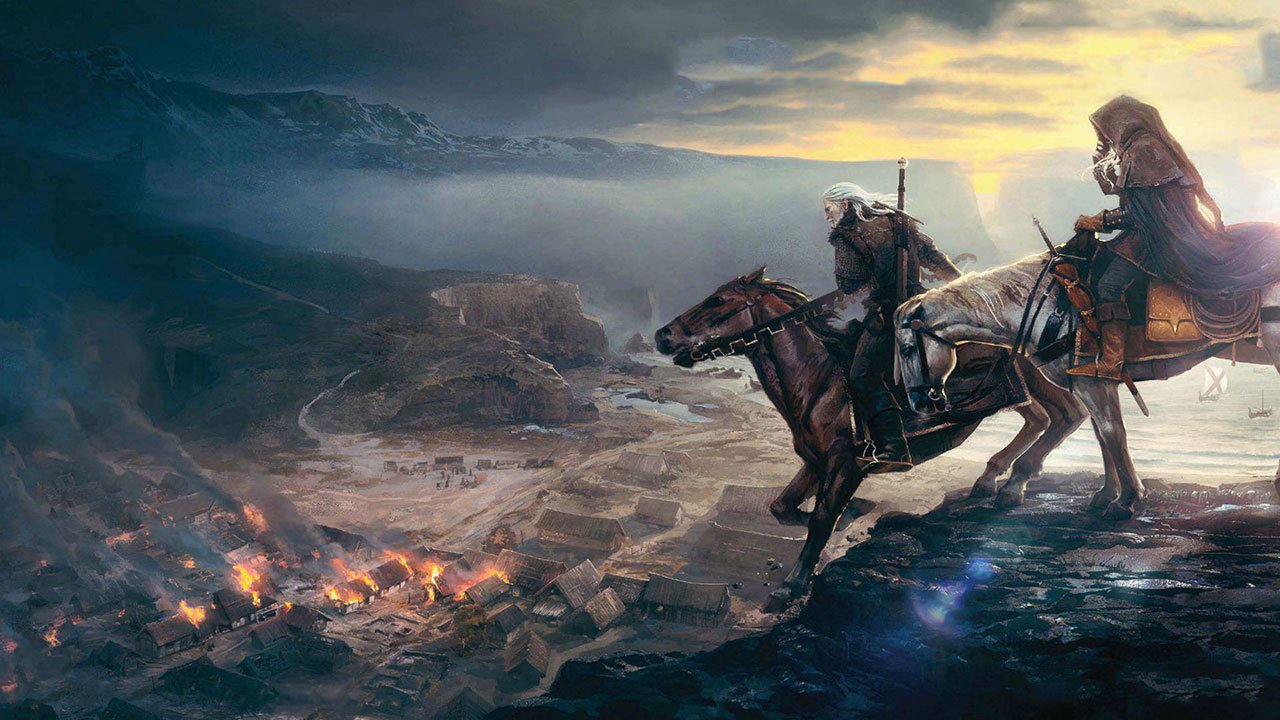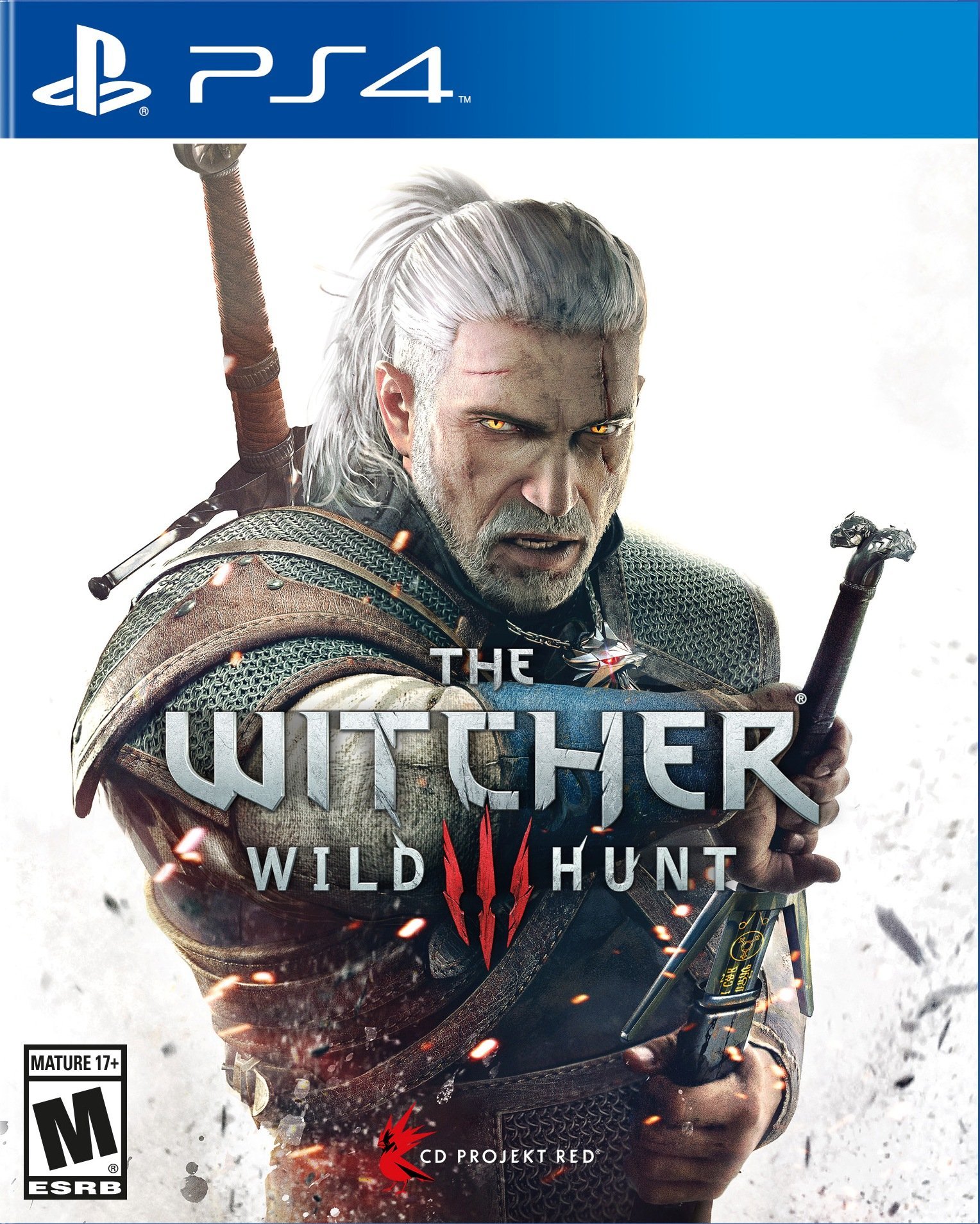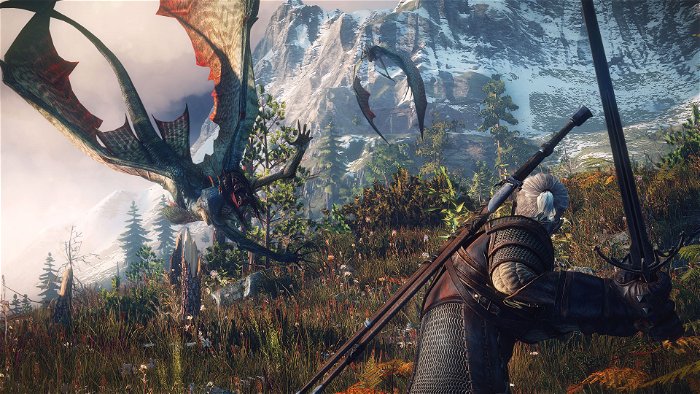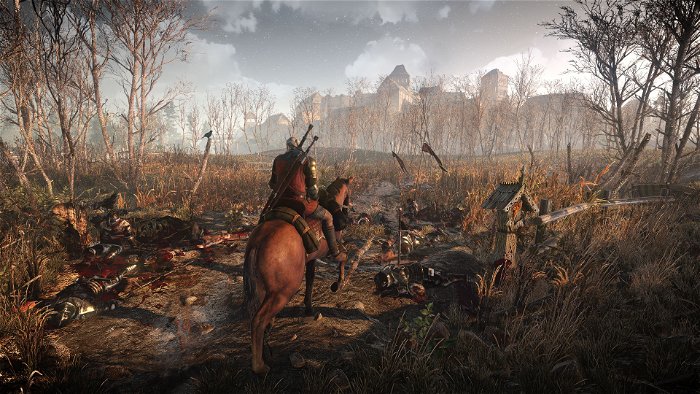As we get deep into the new console generation’s second year, things are finally starting to heat up. All the genres are putting out some big guns now, and RPGs are no exception. RPG fans already got a big, impressive treat in November of last year with Dragon Age: Inquisition, and after that, most thought there would be a long wait until Bethesda finally released the next Fallout or Elder Scrolls game. That thinking is wrong. CD Projekt’s Witcher series has a new, multi-platform instalment, and it’s giving both BioWare and Bethesda a run for their RPG money. It’s a new, vast, immersive RPG it’s an early summer vacation for fans of the genre.
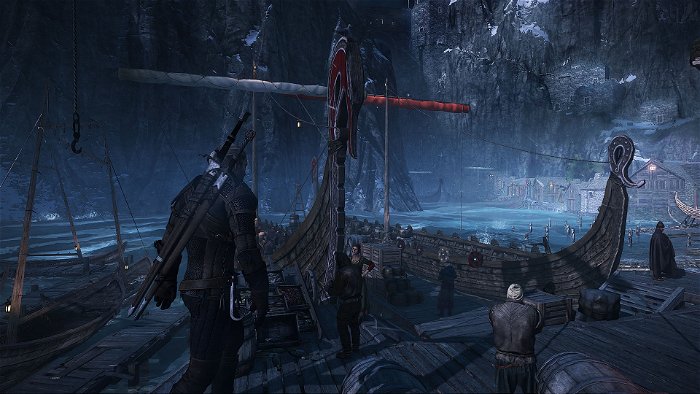
Nothing Is Trivial
In some respects, The Witcher III shares a lot of similarities with recent Bethesda and BioWare games. It’s an RPG in a fantasy setting, it’s in an open world, and it’s got dozens—if not hundreds—of hours of content to experience. Despite that superficial resemblance, The Witcher manages to go toe to toe with those other AAA studios to deliver a legitimate competitor to the Elder Scrolls and Dragon Age franchises.
Unlike those other fantasy IPs, the world of the Witcher is based on an existing franchise of fantasy novels written by Polish author Andrzej Sapkowski. Because of this, players DO NOT have the option of creating a character of their choosing in race, gender or class. Geralt is a male Witcher, period. That may seem limiting to those that spend hours in a character creator, but because the character is “locked in” to the existing literary character it frees up CD Projekt to craft an enormous amount of “custom content,” since they only have to worry about creating quests and activities for one character class with a fixed set of abilities.
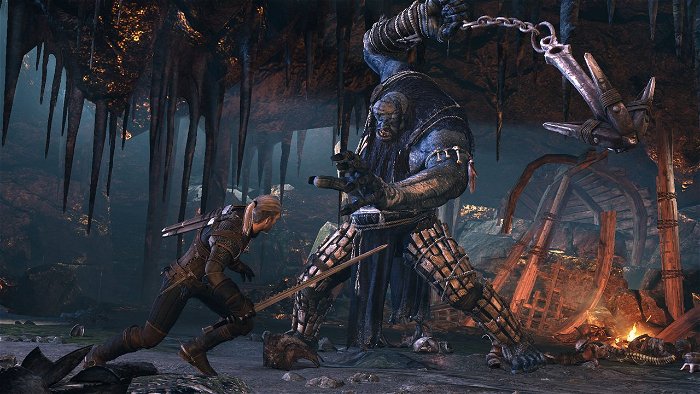
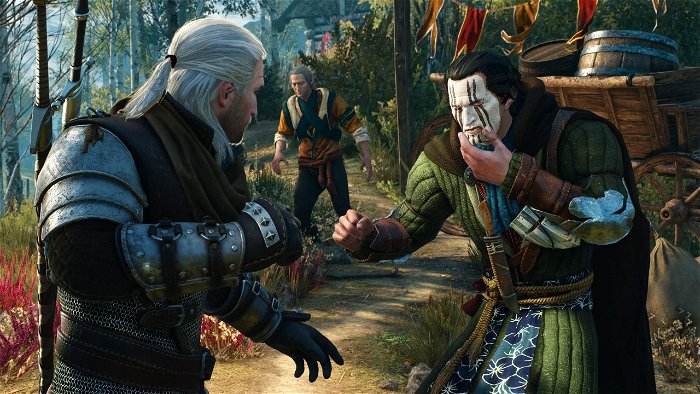
The surprising knock on effect of this is that while The Witcher III has an enormous amount of optional content, none of it feels like “busy work,” or resorts to simple collect-a-thons of shopping lists of creatures to kill or items to grab. Monster hunting—Geralt’s main source of income as that’s what Witchers are trained to do—involves interviewing clients, investigating “crime scenes,” preparing Witcher tools to exploit the weakness of the particular monster, and occasionally bringing closure to traumatized victims. Other side-quests start off harmless enough, doing simple tasks for friends and spiral into surprisingly funny—or tragic—turns that develop characters and have so much plot development that calling them side-quests almost feels insulting. Dragon Age: Inquisition could feel like optional content was mere filler, and Elder Scrolls is famous for geographically dense regions full of optional dungeons and missions that feel like minor amusement park diversions between meaty quests. In contrast, almost all the content in The Witcher III is given the “star treatment,” with full voice acting, actual cut scenes employing cinematography, and occasionally surprising twists that turn little diversions into full blown adventures that feel every bit as important—or even more compelling—than the main story. All of this, and some meaningful choices that radically alter the outcomes of quests, mean that both Bethesda and BioWare should pay close attention to how CD Projekt has tackled quests. This really needs to be a new industry standard for RPGs.
Mechanically, the game also manages to get a lot of things right, with a lot of systems clearly keeping to their more complex CRPG roots. There’s a crafting system that’s almost overwhelming in its requirements for ingredients, components, and the possibility to upgrade existing items. Encumbrance exists, so players can’t just grab and carry everything they want. Alchemy has an intimidating number of decoctions, potions, blade oils and bombs that can be used for a huge variety of situations, and the skill systems involves a lot of slots for modifying Geralt’s six basic “signs,” which are fast deployment magic spells meant for combat. You can’t allocate attribute points, or even gain new entirely new abilities, but in all other ways, The Witcher III is a deep and comprehensive RPG system. Even old school conventions like merchants having limited gold with which to buy your cast off weapons and other assorted junk is implemented here.
Despite all this, there is one thing that consistently hurts The Witcher III and that’s a lack of polish in some surprising places. It’s never enough to break the game—and it’s certainly never a buggy as a Bethesda game—but it’s enough to regularly drag down an otherwise fantastic experience with irritation. The game is finicky about when you can interact with objects, sometimes turning a straightforward task, like examining something, into an old fashioned pixel hunt like with old adventure games. Merchants aren’t marked on maps, meaning you have to remember where all armorers, blacksmiths and other peddlers are if you want to sell loot, or craft a new weapon or armor. The “Witcher Sense,” you use for investigations narrows the field of view, making it difficult to actually investigate properly. Like Bloodborne, there are long loading times, so death in a fight can really kill your momentum. These and numerous other little bugs and/or design choices are present in the game even after the day one patch, and they crop up regularly enough that they can pull you out of what is an otherwise impressive, immersive RPG experience.
It’s difficult to imagine that a better RPG will hit the market in 2015. The Witcher III has a compelling plot, combined with some old school, complex game systems that encourage exploration, crafting and experimentation. It has some rough spots, but when the plot and characters suck you in the way The Witcher III does, it’s worth forgiving the unrefined aspects of the game for the expansive world and engaging, morally ambiguous storytelling.
